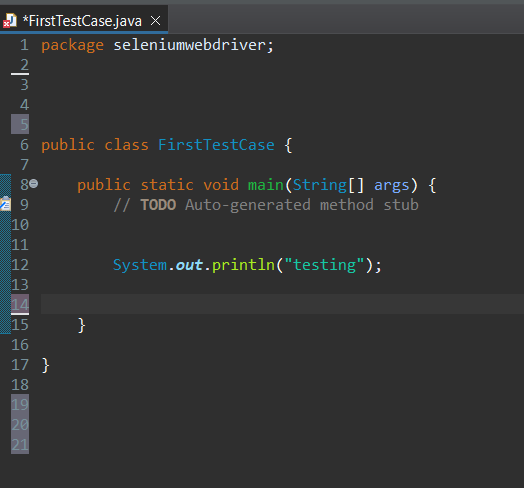FuturaTech
Exploring the Revolutionary Impact of Blockchain Technology on Global Supply Chains
In today’s interconnected world, supply chain management plays a crucial role in the success of businesses across various industries. The complexities involved in sourcing raw materials, as well as delivering finished products to consumers, highlight the intricate nature of supply chains. However, conventional supply chain management systems often suffer from inefficiencies, lack of transparency, and susceptibility to fraud and errors. This is where blockchain technology steps in as a groundbreaking innovation with the potential to transform the management and monitoring of goods throughout the supply chain. This article delves into the ways in which blockchain is reshaping supply chain management, ushering in efficiency, transparency, and trust in international trade.
Introduction:
The traditional supply chain represents a maze of interconnected processes that encompass suppliers, manufacturers, distributors, retailers, and end consumers. Despite advancements in technology and logistics, persistent challenges such as delays, inaccuracies, fraud, and a dearth of transparency continue to plague supply chain operations. Blockchain technology emerges as a viable solution to address these hurdles by offering a decentralized, immutable, and transparent ledger that facilitates secure and traceable transactions. Through the utilization of blockchain, businesses can streamline their processes, cut down on costs, and foster trust and transparency throughout the supply chain.
What is Blockchain?:
At its essence, blockchain serves as a distributed ledger technology that ensures secure and transparent record-keeping of transactions across a network of computers. Each transaction gets recorded as a “block” and subsequently linked together in chronological order to form a “chain” of blocks. Once data is recorded within a blockchain, it becomes unalterable and resistant to tampering, thereby ensuring a high level of security and integrity. Furthermore, blockchain operates within a decentralized network, eliminating the presence of a single controlling entity over the entire system and reducing the risks associated with fraud or manipulation. These inherent characteristics position blockchain as an ideal solution for supply chain management, where transparency, security, and traceability are of paramount importance.
Transparency and Traceability:
A fundamental advantage of blockchain in supply chain management lies in its capacity to offer transparency and traceability throughout the entire product lifecycle. Every stage in the supply chain, ranging from raw material procurement to manufacturing, transportation, and distribution, can be meticulously documented as a transaction on the blockchain. This capability empowers stakeholders to monitor the movement and provenance of goods in real-time, ensuring authenticity, quality, and adherence to regulatory standards. For instance, in the food industry, blockchain can be leveraged to trace ingredient origins, authenticate organic or fair-trade certifications, and swiftly identify and recall contaminated products during food safety crises.
Supply Chain Visibility and Efficiency:
Blockchain technology not only bolsters supply chain transparency but also enhances visibility and efficiency by mitigating delays, errors, and disputes. Through the digitization and automation of documentation and verification processes, blockchain optimizes supply chain operations, expedites transaction processing, and minimizes paperwork. Smart contracts, which are self-executing contracts with predefined agreement terms directly encoded into the system, further elevate efficiency by automating tasks like payment processing, order fulfillment, and inventory management. This not only reduces administrative burdens but also enhances accuracy, reliability, and responsiveness within supply chain operations.
Risk Mitigation and Compliance:
Beyond efficiency and transparency enhancements, blockchain serves as a tool for risk mitigation and compliance enforcement with regulatory standards and industry norms. By upholding an immutable record of transactions, blockchain diminishes the risks associated with fraud, counterfeiting, and unauthorized data alterations. Moreover, blockchain facilitates real-time monitoring and auditing of supply chain activities, empowering businesses to proactively identify and rectify compliance issues. This aspect is particularly critical in heavily regulated sectors such as pharmaceuticals, where strict adherence to quality and safety regulations is imperative to safeguard public health and prevent the infiltration of counterfeit medications into the market.
Collaboration and Trust:
Blockchain technology fosters collaboration and trust among supply chain partners by furnishing a shared and immutable transaction record. By granting stakeholders access to a common blockchain network, collaboration becomes more seamless, information sharing is secured, and trust-based relationships are established. This collaborative framework proves especially advantageous in global supply chains involving multiple entities across diverse geographical locations, where obstacles like communication barriers, cultural disparities, and conflicting interests can impede cooperation. With blockchain, supply chain partners can exchange real-time data, monitor shipment statuses, and coordinate logistics more effectively, ultimately leading to enhanced agility, responsiveness, and customer satisfaction.
Challenges and Adoption Barriers:
Despite the promising benefits, blockchain technology encounters several challenges and adoption barriers within supply chain management. These hurdles encompass technical intricacies, limitations in scalability, interoperability issues, regulatory ambiguities, and the necessity for industry-wide standards and protocols. Furthermore, transitioning from conventional supply chain systems to blockchain-based solutions demands substantial investments in infrastructure, training, and change management. Nevertheless, as awareness and comprehension of blockchain technology continue to expand, and as the technology matures and advances, a surge in adoption and integration of blockchain within supply chain management practices is anticipated.
Conclusion:
Blockchain technology stands as a beacon of promise in revolutionizing supply chain management through its enhancement of transparency, traceability, efficiency, and trust. By furnishing a decentralized, secure, and transparent ledger for transaction recording and tracking, blockchain empowers stakeholders to collaborate more effectively, streamline operations, and mitigate risks. While challenges persist, encompassing technical complexities, scalability issues, and regulatory uncertainties, the potential advantages of blockchain in supply chain management are too substantial to overlook. As businesses delve deeper into exploring and implementing blockchain solutions, a future marked by heightened innovation, efficiency, and resilience in global supply chains looms on the horizon. With blockchain paving the way, the outlook for supply chain management appears bright, transparent, and secure.
FuturaTech
Navigating the Ethical Terrain: AI’s Impact on Healthcare
A Deep Dive into the Ethical Considerations of Artificial Intelligence in Medicine
4 min read·2 days ago
–


FuturaTech
Green Tech Revolution: Building a Sustainable Tomorrow
Exploring Innovations Driving the Rise of Sustainable Technology
4 min read·3 days ago
–


timothy joseph
Overcoming Inadequate Software QA Test Coverage Challenges
Discover efficient methods to overcome common QA test coverage challenges and ensure a high-quality product launch in 2024.
4 min read·2 days ago
–


BullPerks Operator Bearer
The Power of Staking: How to Earn Over 20% APY with Flux USDC $fUSDC on Pendle.finance
Are you ready to learn how to earn over 20% APY by staking Flux USDC \(fUSDC on Pendle.finance? Staking your Flux USDC \)fUSDC can be a…
7 min read·2 days ago
–

Ranjithkumar C
in
CoinsBench
Understanding the Oracle Pattern in Solidity
4 min read·Apr 7, 2024
–

Chris Soschner
in
DataDrivenInvestor
The BTC Case — I Explain Why Everybody Can Become A Billionaire, And Yet Only a Few Succeed
This is a major flaw in human behavior and ruins 99% investment careers right at the beginning…
·10 min read·5 days ago
–
2

M
First Test case in Selenium (Java)
Test Case:
2 min read·3 days ago
–

Albert Peter
in
TokenTrends
Top 5 DePIN Crypto Gems Ready to Explode in 2024
Discover the top 5 DePIN crypto gems set to explode in 2024! Get ahead in the decentralized finance world with these hidden gems.
12 min read·Apr 10, 2024
–
10

